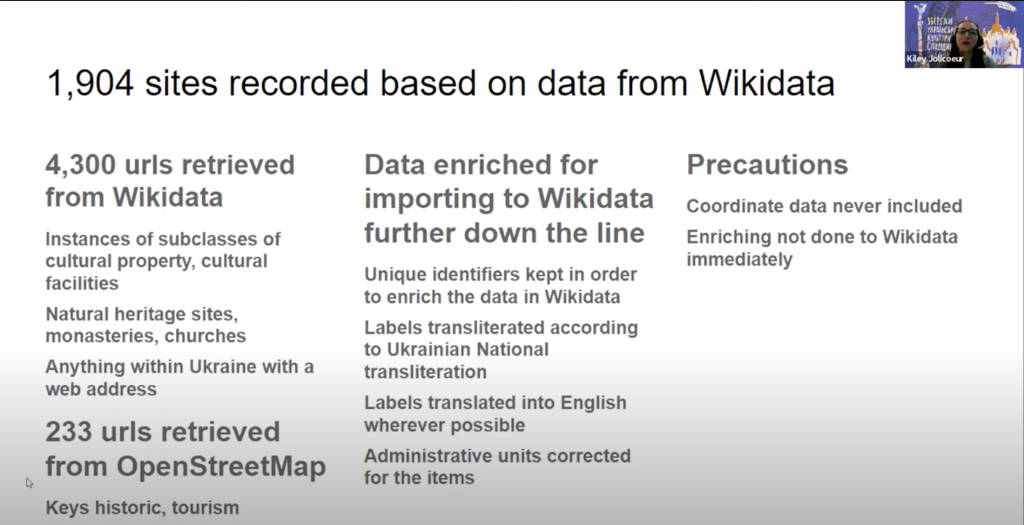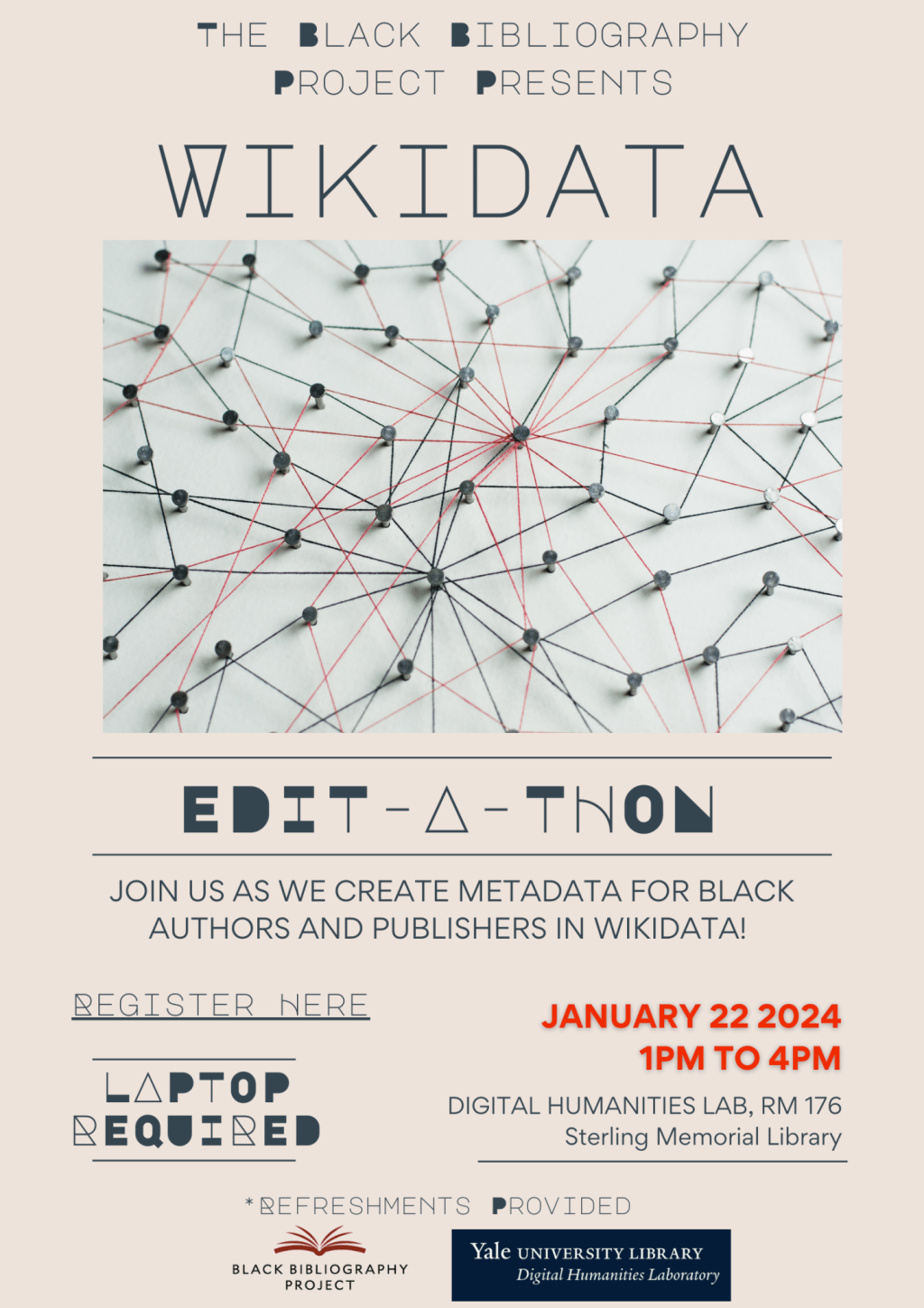In the first post of this series, we shared more about the Workshop that started this all: an LD42023 hour, in which Giovanna and I learned what Librarians think about Wikidata. In our last post, we shared more about what brought these librarians to enjoy and contribute to Wikidata’s linked open-data ecosystem. But many times, inspiration comes from the projects we’ve learned about. So, in this post, we talk precisely about that. Which Wikidata+Library projects were known to this community? Let us dive deep into eleven of them:

1. The Digital Public Library of America (DPLA), the Wikimedia Foundation, and the Alfred P. Sloan Foundation created a collaboration to enhance the accessibility and utilization of cultural heritage artifacts. One of the components of this collaboration has been to improve data quality by implementing Structured Data on Commons.

DPLA’s impact is tangible, with artifacts appearing in over 2,500 Wikipedia articles across 78 language versions, accumulating over 100 million views. Webinars, informational coffee chats, and live sessions offer valuable resources for those interested in delving deeper into DPLA’s Wikimedia initiatives. This work has made DPLA one of the largest institutions to upload to Wikimedia Commons and the biggest one to contribute to Structured Data on Commons. DPLA welcomes new partners and institutions as the project progresses to join this transformative endeavor. Read more here. If you want to get more involved with DPLA, there’s also a Wikimedia Working Group. Read more about it here.
2. Promoting Open Knowledge Practices in African Libraries through Wikidata. This was a WMF-approved grant proposal from the African Library and Information Associations and Institutions, which trained 392 librarians trained in English and French (you can check out the materials as zip files in their final report!)

3. ELTEdata is a semantic database developed at the Department of Digital Humanities of the ELTE BTK TI. The primary purpose is to organize and publish research groups’ materials in prosopography, bibliography, and other historical subjects in a semantic data network.


4. Saving Ukrainian Cultural Heritage Online (SUCHO) used Wikidata to retrieve 4,300 Ukrainian URLs, which helped them in their mission to digitize and preserve Ukrainian digital cultural heritage.

5. The Wikidata:WikiProject Nuremberg Trials is a collaborative effort to create items for authors of documents (primarily written statements or affidavits) used in the Nuremberg Trials. Worth noting is the Cradle template they made to help users contribute to their project by filling up the fields.

6. The Wikidata:WikiProject Chinese Culture and Heritage is an initiative by 13 Chinese American librarians from several institutions who got together in 2020 to work on Chinese-related topics. During the last few years, this group has worked on challenges in creating Chinese-related Wikidata entries, a data model for Chinese women poets (a comprehensive list is available here), and different visualizations using the Wikidata SPARQL Query Service.

7. The Black Bibliography Project (BBP) is a Wikibase project that aims to build a Black Bibliography by reviving “the practice of descriptive bibliography for African American literary studies.” Its objectives are twofold: To fix the scarcity of Black print and bibliographies by enriching data and, more boldly, to rethink bibliographic and cataloging practices so that Black print culture is well described in its essence.


8. The WikiProject University of Washington Libraries is an initiative accomplished by catalogers from this same university. It is divided into two other projects: WikiProject PCC Wikidata Pilot/University of Washington and WikiProject University of Washington Archival Metadata. UW Libraries contributors are also involved in a third initiative, the WikiProject Personal Pronouns.
– Members of the Archival Metadata WikiProject for instance, have mapped MARC fields to Wikidata fields and even have a Github repository with them.
– The WikiProject PCC Wikidata Pilot is a project organized by the Program for Cooperative Cataloging (PCC), “an international cooperative effort aimed at expanding access to library collections by providing useful, timely, and cost-effective cataloging that meets mutually accepted standards of libraries around the world.” They are using Wikidata as an identity reconciliation service and implementing identity management principles, as Wikidata lowers “the barrier to authority creation and maintenance by PCC members.” The University of Washington is one of the contributors to the PCC Wikidata project.
One of the most interesting activities accomplished by the UW Libraries on Wikidata is the tables filled with property suggestions. These tables are essential information for those looking for guidelines on how to best model Wikidata items and for developing and establishing Wikidata best practices for library data.
Discover their tables here: Archival Collections, Faculty and Staff, Graduate Students, General References and Qualifier Information, UW Corporate Bodies, UW Buildings, Subjects, Dissertations and Theses.
On this page, the project shares workflows, pieces of training, and resources for those interested in learning more. And on this page, you can find all the items created for the Labor Archives of Washington.

9. The Digital Scriptorium project uses linked data and the Wikimedia environment to allow better access to manuscripts. DS is a consortium of North American institutions with collections of premodern manuscripts, such as the Boston Public Library, University of Pennsylvania Indic Manuscripts, and Columbia University Rare Book & Manuscript Library, among others.
DS uses Wikidata, Getty Vocabularies, and FAST to facilitate the access, search, and research of manuscript data across its member institutions and to “link to external authorities for richer context and deeper data exploration.” The system also offers a Query Service, the DS Wikibase SPARQL Endpoint. This service allows more comprehensive data search and discovery.
Currently, DS is working to enrich its Linked Open Data and is welcoming even more institutions to join the platform.

10. The Linked Data Research Group was established in 2018 and is a Wikibase project that uses and applies “linked data methods to investigate the data-driven semantic indexing of text and time-based media collections to facilitate the precision search for attribute-bearing collection items, item parts, and other granular components via SPARQL queries and URL-based locators.”
This work results in SPARQL queriable RDF knowledge graphs, which the Office of Information Technology (OIT) from the University of Alabama maintains on a local Wikibase.
For their explorations and investigations, they consider two “overarching empirical questions”: the scalability of the semantic indexing method and the state of queriability of semantic indexing results.
Currently, they have three ongoing projects: 1) Sports DAM Knowledge Graphs resulting from the semantic indexing of time-based media collections; 2) Philology Graphs resulting from the semantic indexing of text collections, and 3) Documentary Series Knowledge Graphs resulting from the semantic indexing of time-based documentary media collections (series).
11. As the name indicates, the WikiProject Wikidata Religion & Theology Community of Practice is an initiative to improve and represent data about religion and theology on Wikidata. It is mainly aimed at librarians and encourages collaboration in this community of practice.
The project has developed data models, such as the “recommended properties for person” and “recommended properties for publications,” which include books, scholarly articles, and publication venues. There’s also a list of Religion-related journals needing metadata and authors needing disambiguation.
On March 20, 2023, the initiative organized an event with ATLA, a “membership association of librarians and information professionals committed to advancing the study of religion and theology.” Following the event, the project launched a demo video on manually adding an article to a Journal in Religion in Africa:
This series will comprise six Diff posts, including this introduction, each describing at length the five Jamboard frames used in this workshop. Follow them here:
- #LD42023 I: The Future of Wikidata + Libraries (A Workshop)
- #LD42023 II: Getting to Know Each Other, Librarians in the Wikidata World
- #LD42023 III: The Examples, Libraries Using Wikidata (this post!)👈
- #LD42023 IV: Wikidata Tools everyone is talking about
- #LD42023 V: Main Challenges of Wikidata for Librarians
- #LD42023 VI: Imagining a Wikidata Future for Librarians, Together

Can you help us translate this article?
In order for this article to reach as many people as possible we would like your help. Can you translate this article to get the message out?
Start translation